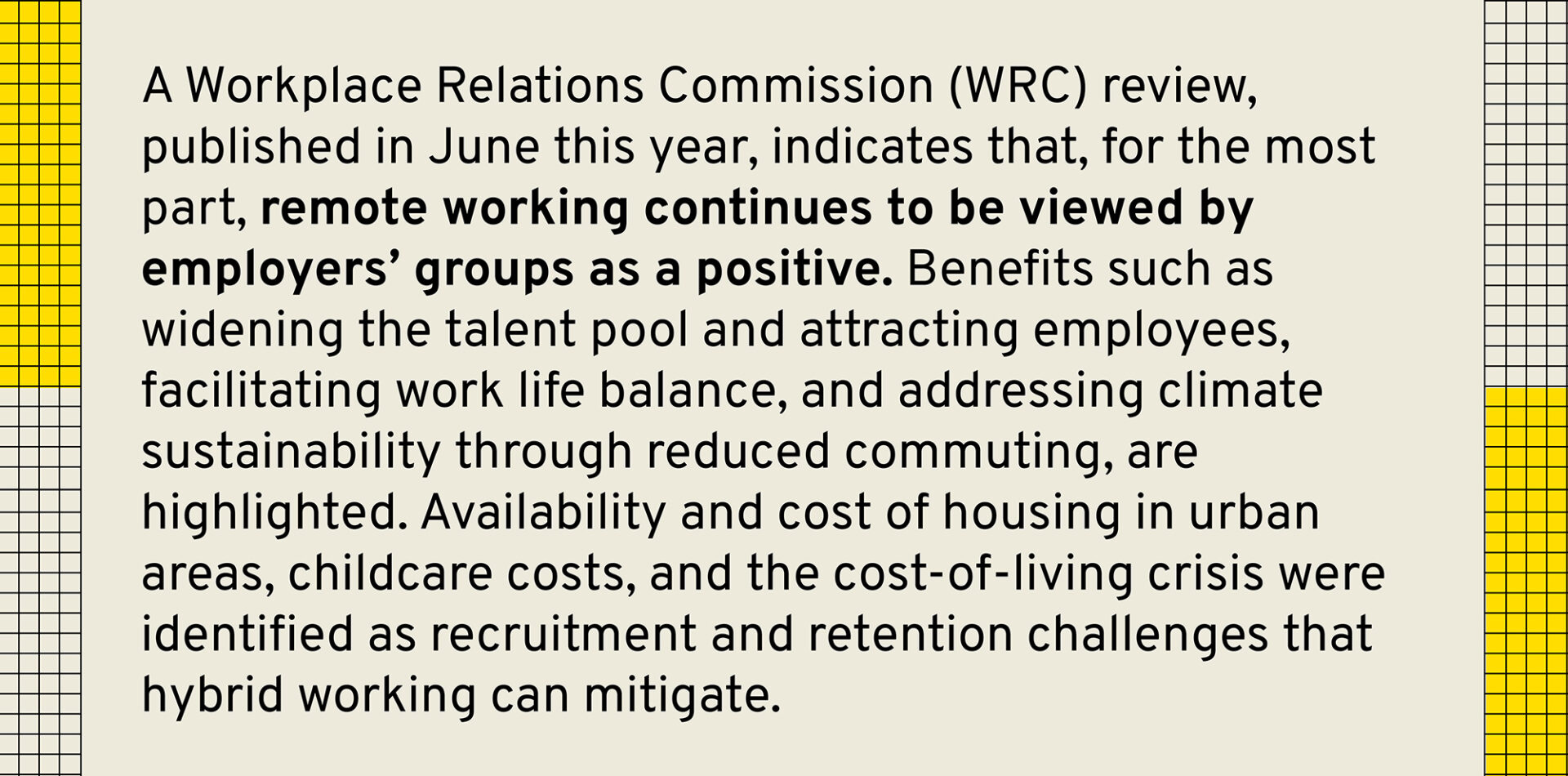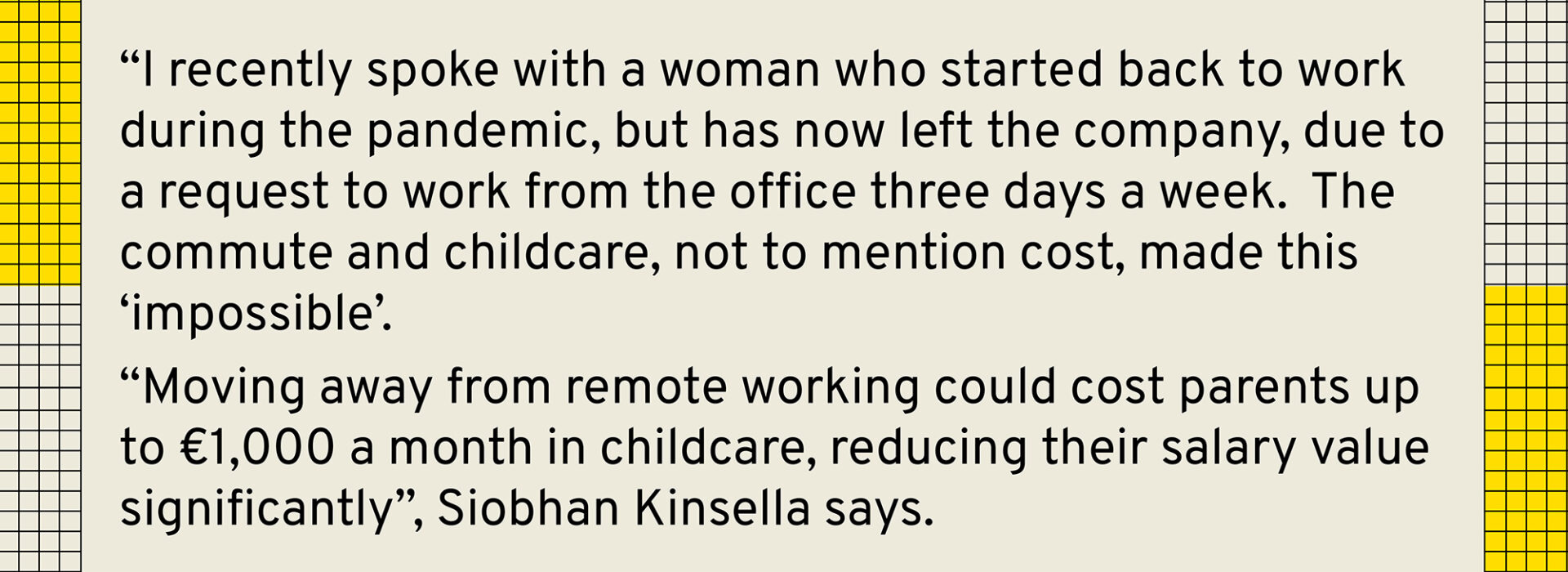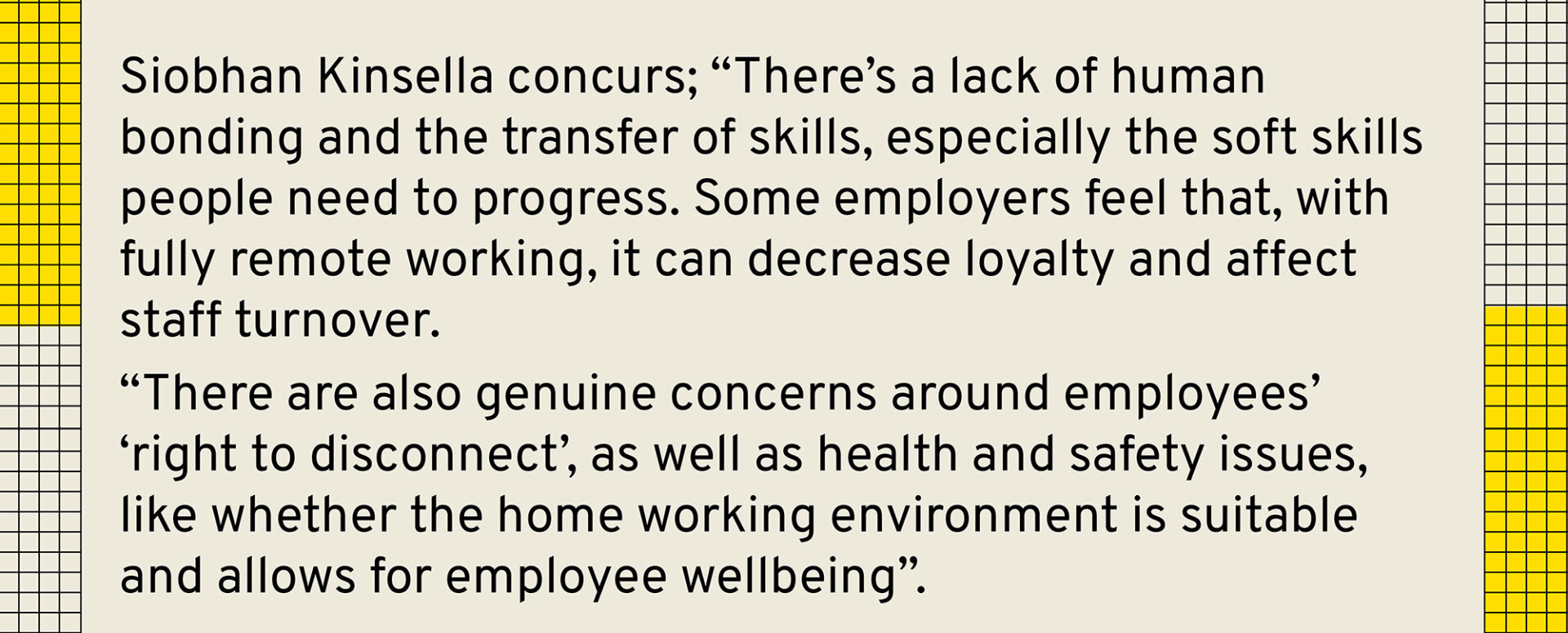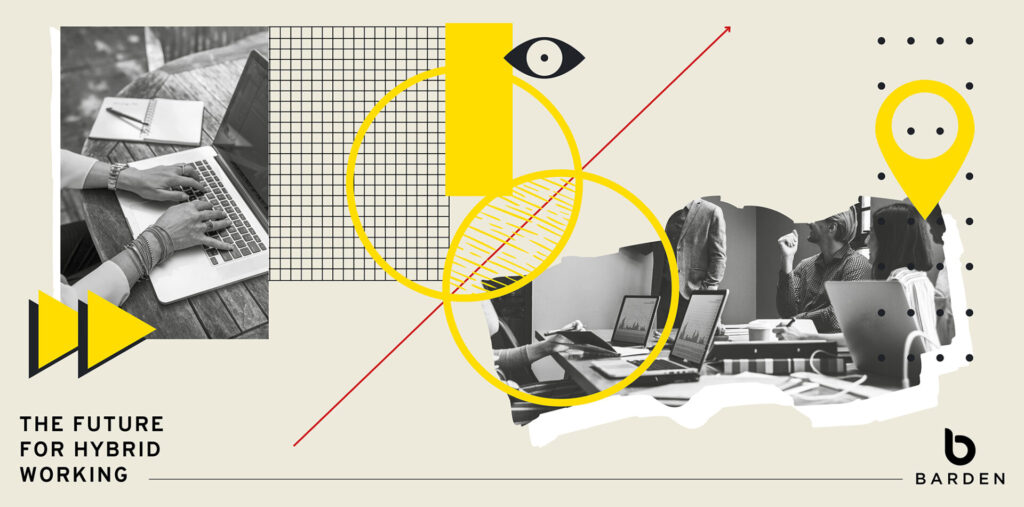Ed Heffernan, Managing Partner of Barden Ireland, and Treasurer of Ireland’s Employment & Recruitment Federation writes for the Sunday Business Post, examining prospects for remote and hybrid work.
Amazon signalled the end of its hybrid work policy last week, with staff due back in the office, five days a week, from January next. The opportunity to better invent, collaborate, and be connected to each other was cited in the reasoning for the move.
As COVID was coming under control here in the summer of 2021, Government advised some workers could return to their offices by the end of August. 80% of us were recorded as working remotely, during the pandemic, and three months later, at the end of 2021, two in three workers (65%) worked remotely, as detailed in the Our Lives Online CSO Pulse Survey. Around that time, Barden did a rough study of clients, and it came out that 70% of businesses had a hybrid working structure, typically three days in the office. 15% of businesses were fully remote, and 15% were fully in the office. We did that study again this summer and, although remote working still very much exists, there’s definitely a shift.

Working Monday and Friday from home seems to raise particular productivity concerns, as an extended weekend, so some workers are now obliged to come in on certain days of the week.
How Remote is Remote?
US-owned firms are big advocates of a return to the office, it seems, with more flexibility from smaller firms and Irish-owned businesses. A trend we are also seeing is that remote working is not always that remote, even though hiring managers might advertise a job as such.
For example, if I have two software developers lined up for interviews in a Dublin-based company, one living in Kerry and the other in Dublin. Normally, the hiring manager opts for the person who is physically closest, all other aspects of the candidature being equal. Why? Because if there is a need to meet, it’s less of a problem. And no company doesn’t have a couple of days in the office every month. So logistically it makes sense.
Jobs might be remote to the office, but they’re less often remote to the location of the office.
Full employment strengthens employees’ hand
Meanwhile, employment continues to grow, year on year, to near full employment. Ireland’s unemployment rate was 4.2% in June, down from 4.4% in June 2023. Talent demand should support certain workers insisting on remote, hybrid, or flexible working arrangements.
Last year’s 2023 Remote Working in Ireland Survey by the Western Development Commission saw 92% of respondents, working remotely, say that access to remote or hybrid working would be a key factor in their decision to change employer.
By-products of hybrid working, like reduced commute times and transport costs, lower childcare expenses, more family time, and being able to live in lower-cost locations, are difficult for employers to compensate for, particularly in an inflationary pay environment.

So too, insisting on staff being onsite can impact the ability to attract necessary international talent who wish to work fully remotely.
Gender Balance
There is also concern that firms’ desire to get workers back in the office will hamper gender participation in the workforce, according to Siobhan Kinsella, President of the Employment and Recruitment Federation and Managing Director at Strategic Placements:

For many, especially women, flexible working makes for a better family life. But Siobhan Kinsella believes employers can offer flexibility in other ways, like flexitime or nearby creche provision.
“If a parent can drop children to school, and head to the office afterwards, there’s an opportunity for the best of both worlds”.
Employer View
From an employer’s perspective, the negatives of remote working include the inability to seamlessly learn, sitting at a desk, or chatting around the water cooler. Collaboration and learning are cited in the push toward office work, particularly when it comes to training new hires. There is a fear that young workers are missing out on the human, softer skills.
Professional services firms, in particular, want new intakes in the office, as they rely on them learning from senior staff. Exposure to colleagues is necessary for training. Extended hybrid or remote working is more likely to be facilitated for workers with a longer tenure, especially mid-level IT and administrative occupations.

While, for the most part, some hybrid and remote working is supported, arrangements are likely to remain informal, as employers wait for a code of practice and legislation.
There is currently a right to request remote work. However, specific dictates may lead to complications for employers in the future, particularly when balancing requests with operational needs and having different employees on various working arrangements.
People management remotely requires more time, outreach, and ongoing performance KPIs, as well as upskilling. It can be difficult to ensure people feel connected and get the necessary networking opportunities for business development, succession, and career planning.
About the Employment and Recruitment Federation (ERF)
Ireland’s Employment and Recruitment Federation is a voluntary organisation to establish and maintain standards and codes of practice for the recruitment industry. Representing over 220 member companies across Ireland, the ERF promotes training, information and advice, and member’ services, such as vetting, as well as lobbying on national and EU policy and industry issues impacting the labour market.


 Jump Back
Jump Back

